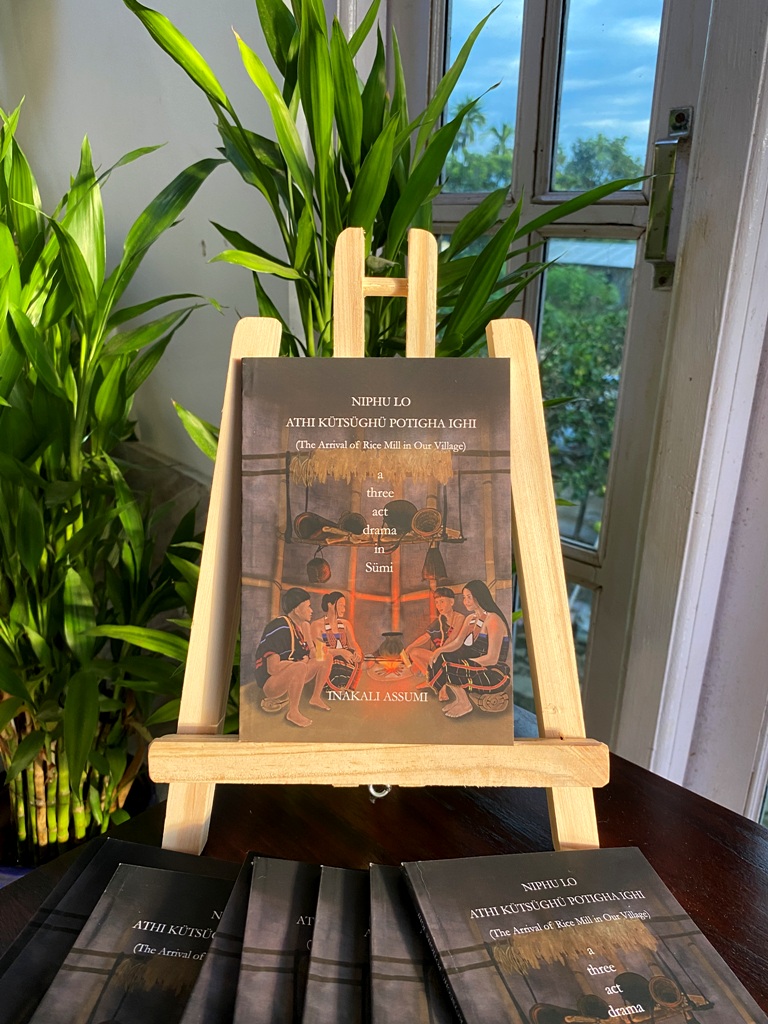Share

DIMAPUR — ‘Niphu lo Athi Kütsüghü Potigha Ighi’ (The Arrival of Rice Mill in Our Village), a three-act drama written in Sümi by Dr. Inakali Assumi, was released recently.
According to a press note from the author, the motive of contributing to the rich body of Sümi literature and preserving the vulnerable dialect of the author’s community through literature remains at the core of this work.
The author, at the same time, was critical of the youths who lack proficiency in their own language and dialect, even when both parents belong to the same community.
Dr. Assumi stressed that reading more literary works written in one’s own dialects could help the younger generation gain competence in their language, which in turn supports the preservation of their cultural identity. Therefore, she emphasised the need to create more creative works in these dialects.
The play is set in a small Sümi village and captures the cultural transition from age-old traditions to modernity through the introduction of modern machinery. The rice mill serves as a symbol of modernity and Western cultural influence.
Dr. Assumi provides insight into the perplexity of a traditional Sümi village adapting to a new way of life. This conflict is explored through dialogue and debates among the major characters in the play.
Also read: Inakali Assumi releases new book ‘Voice from the Forgotten Village’
The author expressed that the work is the result of immense support from Dr. Nishena Nekha, additional director of the Directorate of Higher Education, who inspired her to write a Sümi drama.
She expressed gratitude to Dr. Nekha and her uncle Akhalu Assumi for proofreading the manuscript repeatedly and giving it an articulate shape. The author further hopes that the book will fulfil the purpose for which it was conceived.